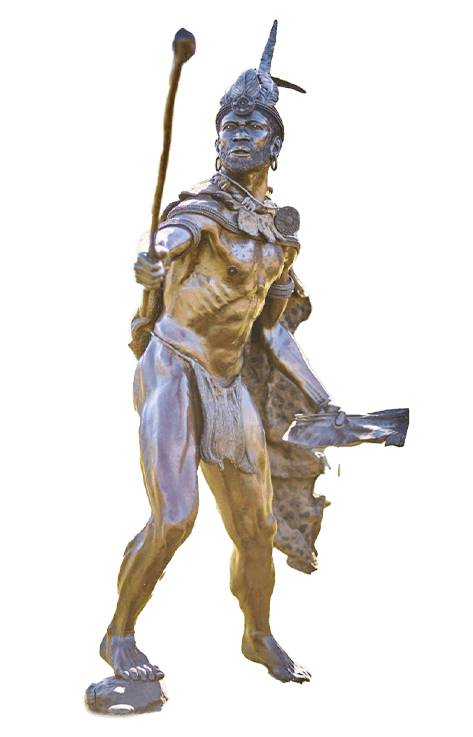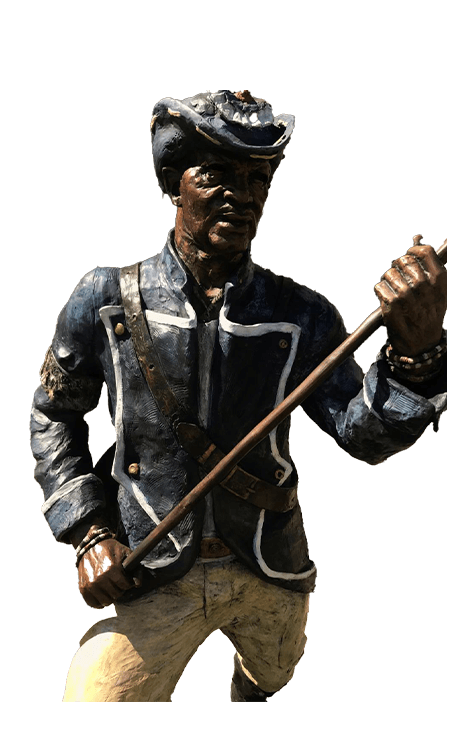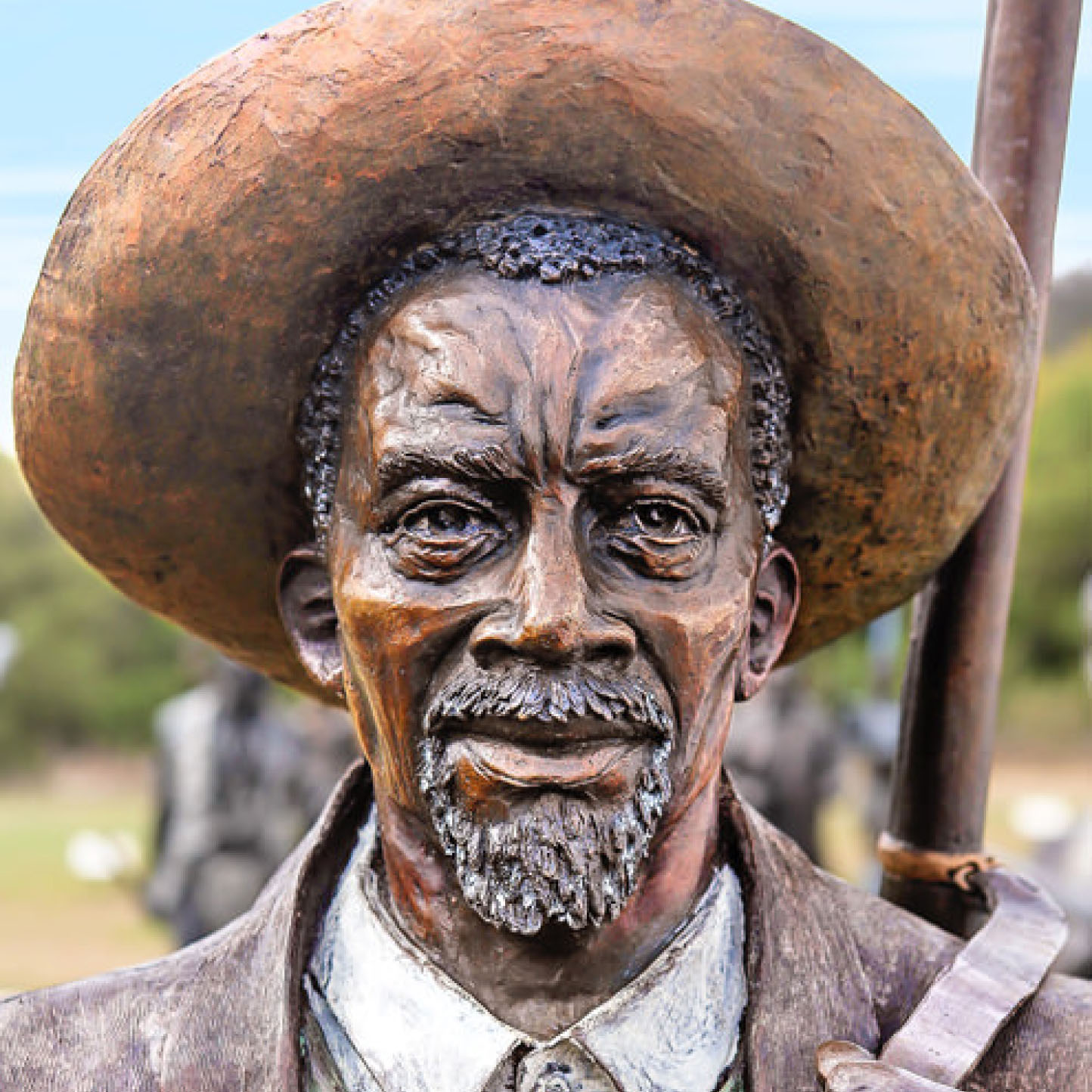
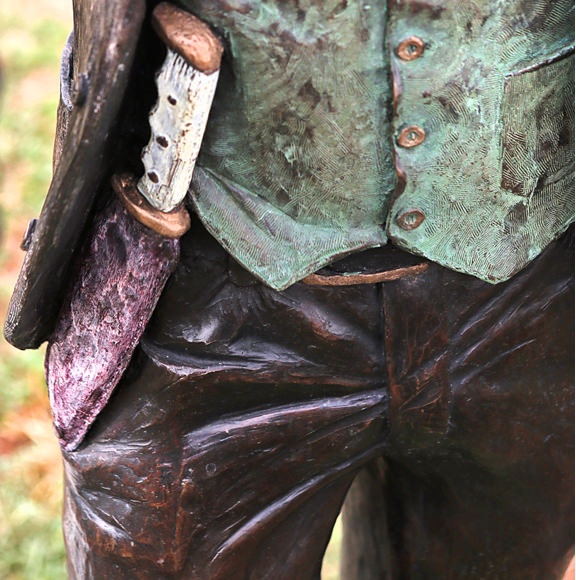
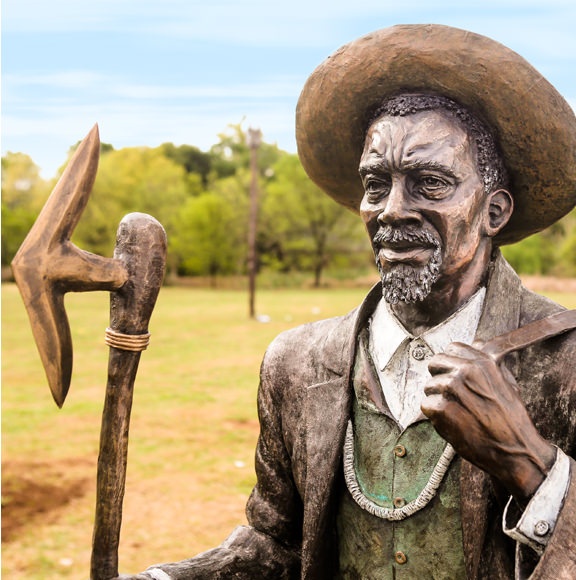
"The Warrior-King Makhado Tshilwavhusiku Ramabulana's exploits in defence of our land, our dignity and our well being will forever remain etched in our proud history of resistance to colonialism."
Former President Nelson Mandela
King Makhado Ramabulana
1825 - 1895
King of the Vhavenda
King Makhado is the most well-known king of the dominant Singo clan of the Vhavenda, who by the end of the 17th century had settled in present-day Limpopo.
He was the youngest of King Ravele Ramabulana's nine sons, chosen to become king because he was considered brave and the most popular of all his brothers.
By 1858, King Ravele Ramabulana had permitted Boer settlers to put down roots in Schoemansdal, a village at the foot of the Zoutpansberg where elephant tusks, lion and leopard skins, dried meat and teak were bartered for gold and other commodities. This was the most northerly point reached by the settlers migrating from the Cape Colony.
After King Ravele's death around 1864, the settlers demanded taxes from the new king, Makhado, and tried to confine the Singos to a reserve determined by themselves. General Paul Kruger backed these demands and told the settlers to dislodge Makhado and establish unchallenged rule.
Makhado became known as the Lion of the North because of the ferocity with which he resisted these attempts to drive him off his land. He was also given the title Tshilwavhusiku tsha Ramabulana or 'Night Fighter of Ramabulana' because he mounted night attacks with men who knew the area intimately.
Makhado was a strong king, who led his people from the front, and a skilled warrior. He successfully commanded his regiments, outmaneuvering the Boers who plotted against him and effectively kept them at bay until his death.
He died from a suspected poisoning planned by his first wife and some of his own lieutenants in 1895. Only after his death did the settlers defeat his successor Mphephu in one of the last wars of resistance in the Transvaal.
